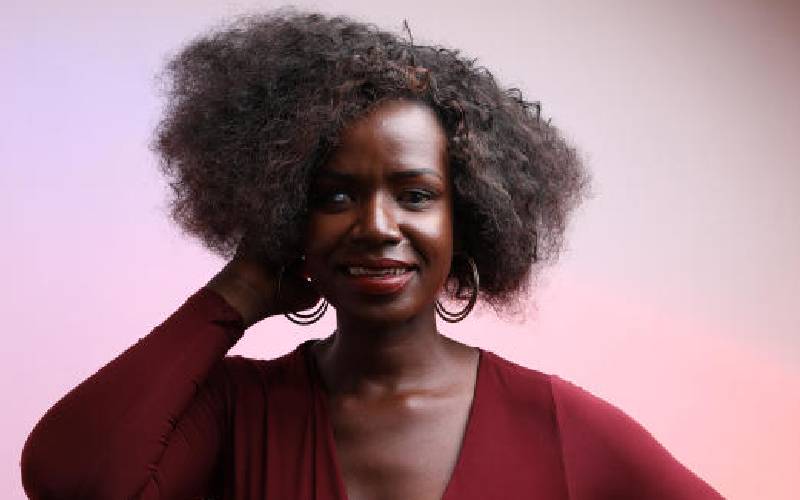
Glaucoma survivor Crystal Asige. [File, Standard]
Glaucoma is an eye condition caused by an increase in eye pressure usually called intraocular pressure and can cause damage to the optic nerve which sends images to the brain.
Medics say that when the damage worsens, glaucoma can cause permanent loss of vision and it is believed to be the leading cause of irreversible blindness in the world
Crystal Asige was diagnosed with open-angle glaucoma in 2008 when she was in high school in Mombasa.
She realised she could not see properly when in class or during sports, or when taking part in evening activities.
“I was in the drama club which involved reading scripts. I realised something was wrong because I had to hold the script very close to my eyes so that I could see. The same thing would happen in class and in sports especially playing games,” she said.
She assumed she only required spectacles because her parents also wore them. At the time, she did not have any information or the awareness that there was a condition like glaucoma.
She carried on with school but in order to cope, she decided to let go of the sports instead of telling people that she could not see clearly, because according to her, she did not want to be treated any differently although she knew something was not right.
Apart from not being able to see clearly, she had no pain or any other signs that were pointing towards glaucoma.
“I think that is why this condition is called ‘the secret thief of sight’ because I had no redness, itching, pain, or headaches, just the slow and gradual loss of sense of sight,” she narrated. “It would take a year for me to figure out that I could not see the TV from a particular couch but now I have to sit closer. It was not something sudden or fast, just gradual.”
After joining the university, despite the fact that she was still wearing glasses, she struggled to see the lecturer because the lecture hall was large, and it was at that time that she was advised to see an ophthalmologist.
She underwent several tests and she was given eye drops and other drugs to ease the pressure in the eye, but the other option would have been surgery.
“I used the eye drops and the other drugs hoping my condition would improve. But after a year of not getting better, I was told that I had to undergo a surgery because the pressure wasn’t going down as expected,” she says.
The surgery was meant to manually ease the pressure in the eye to prevent it from affecting the retina and other nerves in the eye, which was successful but the pressure began to build again after eye drainage channels started getting blocked.
Her eyesight has continued to gradually decline despite the series of surgeries and this affected her both physically and emotionally.
“You go into surgery expecting to see change, but after a while, the pressure builds again and sometimes your heart sinks; losing my sight was like mourning, I was born with my eyesight and now I have to mourn that loss,” she said.
“If anyone has a family member or a friend with glaucoma, they can reach out to Glaucoma Society of Kenya where they can find support groups of others like them and this will help them,” says Crystal.
According to Dr Frederick Korir, an Ophthalmologist, there are certain risk factors that lead to glaucoma such as being short-sighted, being above 35 years, having a family with glaucoma history, being diabetic, and also being an African.
He explains that this disease is painless and can only be detected when the pressure is checked by an eye specialist, calling out to people to get checked frequently by eye specialists.
Glaucoma is managed medically by the use of eye drops, and if they do not work, then it is escalated to surgical management which involves the use of surgery, laser, or having a tube inserted in the eye to relieve the pressure.
 The Standard Group Plc is a multi-media organization with investments in media
platforms spanning newspaper print
operations, television, radio broadcasting, digital and online services. The
Standard Group is recognized as a
leading multi-media house in Kenya with a key influence in matters of national
and international interest.
The Standard Group Plc is a multi-media organization with investments in media
platforms spanning newspaper print
operations, television, radio broadcasting, digital and online services. The
Standard Group is recognized as a
leading multi-media house in Kenya with a key influence in matters of national
and international interest.











